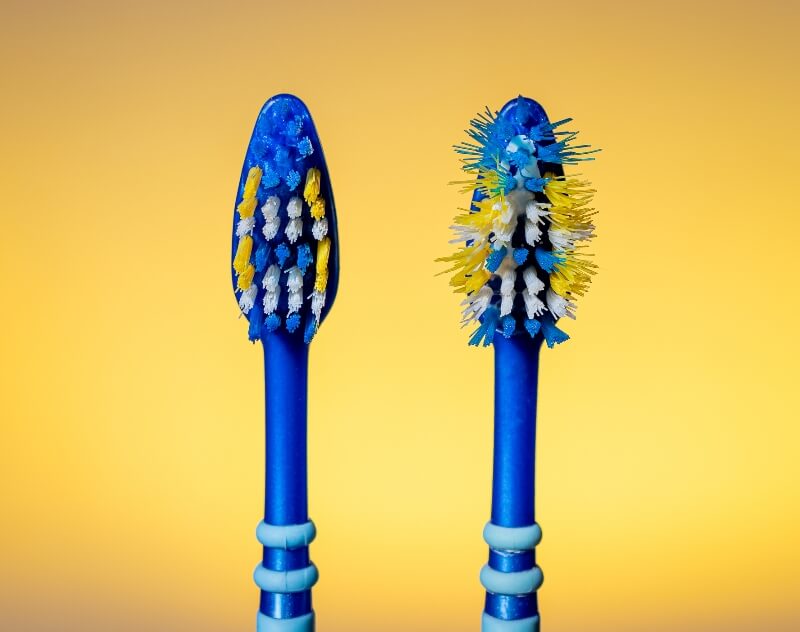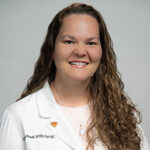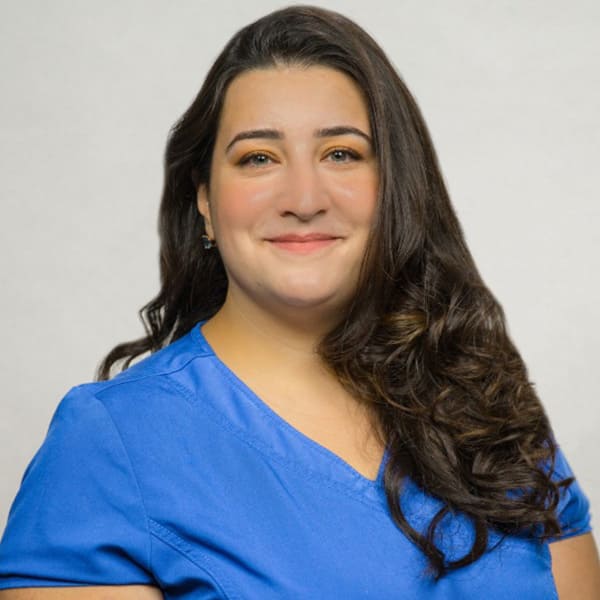How Often Should I Replace My Toothbrush?
How often should I replace my toothbrush?
Good oral care is essential to your oral health, and taking care of your oral health benefits your entire body. One of the most important components of good dental care is brushing twice a day, and that can be rough on a toothbrush. So, asking “when should I replace my toothbrush” is valid. What’s the best way to take care of your toothbrush, so that it can take care of your teeth? A good rule of thumb is to replace your toothbrush every three to four months, but are there other reasons to change your toothbrush? We’ve got the answers you need, along with some tips on oral healthcare.
Replace Your Toothbrush After an Illness
When you are sick, your toothbrush can hang on to bacteria and viruses for days. This means that if you reuse the toothbrush, you’re likely to reinfect yourself. This holds true for illnesses like the cold and influenza, but it is also the case with ailments like a canker sore or cold sore. It’s best to replace your toothbrush after any illness, in order to stay healthy.

Other reasons to change your toothbrush
It is actually a good idea to change out all the toothbrushes in the house when anyone in the household has been sick. Many illnesses are extremely contagious, and it is better to be safe when it comes to toothbrushes. While everyone’s toothbrush should be replaced if it starts to look worn or the bristles become splayed, children’s toothbrushes should be changed more often. Children do not tend to be careful with their toothbrushes and are prone to putting them down on surfaces that are not sanitary, as well as gnawing on them. You should also dispose of your toothbrush if anyone else uses it, because everyone has different bacteria in their mouths, and passing germs back and forth is unhealthy.
How to take care of your toothbrush
You use your toothbrush to maintain and protect your oral health. It’s best to use a soft bristled brush and brush at least twice a day, for two minutes at a time. While you’re using your toothbrush to care for you teeth, though, make sure you’re caring for your toothbrush. Don’t share it with other people, and if you keep it in a container with other toothbrushes, don’t allow the heads to touch. It’s best not to keep your toothbrush in a closed container, though; this can encourage the growth of bacteria and mold. Once you’ve finished brushing, rinse your toothbrush thoroughly with water from the tap. There is no need for disinfectant or rinsing it in hot water, because this can actually do more harm than good in terms of spreading germs.
How often should you change an electric toothbrush head?
If you use an electric toothbrush, it cleans the surface of your teeth by rotating or vibrating quickly. While you might not think they need frequent replacement, toothbrush heads from an electric toothbrush still have nylon bristles that fray and wear out. In fact, you’ll probably need electric toothbrush replacement heads more frequently than you need to replace your manual toothbrush, because the short heads can be fray more quickly. You will need to replace it every three months, or even more often, if it is looking worn or frayed.
Why You Should Change Your Toothbrush
If you do not change your toothbrush often enough, bacteria and fungus can accumulate. However, that’s not the only problem that can occur. Old toothbrushes can be ineffective and fail to remove plaque from the teeth, which leads to gingivitis. You can also ingest mold or get sick from using an overused toothbrush.
Protecting Your Toothbrush from Germs
Since toothbrushes are generally kept on the bathroom counter, people are often nervous about the spray caused by flushing the toilet. While this phenomenon, called toilet plume, does cause bacteria and unwanted particles to become airborne, it is not likely to cause you to get sick unless you store your toothbrush on the toilet itself. While it might seem logical to store your toothbrush in a closed container or the medicine chest, that is actually a bad idea. Enclosing the toothbrush in a medicine chest or container creates a humid environment in which bacteria and mold are likely to grow. The best way to store a toothbrush is on end, in the open air, not touching any other toothbrushes, so that it can dry thoroughly. Still worried about toilet plume? Institute a lid-down policy.
Let Brevard Health Alliance Help Protect Your Oral Health
Protecting your oral health is important, because poor oral health can have a negative impact on the health of the entire body. Whether you need a dentist, a primary care physician or a behavioral health specialist, Brevard Health Alliance, Inc. is here for you. Brevard County’s only Federally Qualified Health Center, BHA offers extensive health care services on a sliding-fee scale, so that we can treat residents regardless of their ability to pay. We’re committed to providing an extraordinary quality of care for our patients in order to improve the health status of Brevard County. Our focus is on continually improving the quality and efficiency of our care, and on ensuring that every patient we serve is heard, encouraged, and respected. As your family health care provider, we strive to provide not just acute care but also preventive care and health care related education. Our board certified physicians, advanced practice nurse practitioners, and physician assistance provide primary care that includes well child checkups, well woman care, and physicals, along with chronic disease management. In fact, since 2005 we’ve provided not only primary care services, but also behavioral health services, dental services, diagnostic services, resource management services, pharmacy services, women’s health care and obstetrics, Hepatitis C and HIV services, extended hours pediatric walk-in care, and specialty referrals. For more information, to find a location, or to make an appointment, contact us through our website.
















































































































































